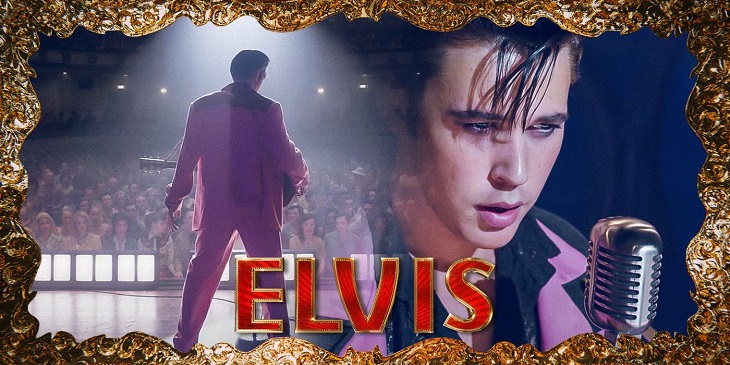” Elvis” features all the gaudiness, rocks, and jumpsuits you’d anticipate from an Elvis movie, but it lacks the complexity needed for a 2022 picture about the” King.” The perfect filmmaker for a Presley biopic shouldn’t be Baz Luhrmann, a maximalist who despises artistic restraint and prefers tremendous theatricality, but he isn’t. Luhrmann narrates the tale of this icon from the standpoint of Colonel Tom Parker, the songster’s lifelong, dishonest director( Tom Hanks). A near-death Parker awakens by himself in a Las Vegas sanitarium room after collapsing in his gaudy, cairn-filled plant. He needs to clear his name because he has been called a felonious and a cheat who took advantage of Elvis( Austin Butler) by the media.
Luhrmann’s aesthetic vocabulary is apparent right down In a sanitarium gown, Parker makes his way around a summerhouse until he finds a roulette wheel after an IV drip transforms into the Las Vegas cityscape. Hanks plays Parker like the Mouse King in” The Nutcracker,” carrying a lot of pretensions.” Elvis” moves like a Christmas fairytale turned into agony for exactly the first half-hour of the movie; one that’s propelled not by covetousness but by the insidious grips of capitalism and racism, and the potent creation they produce.

Given that” Elvis” sometimes provides watching pleasure for extended stretches, it’s challenging to completely explain why the film fails. Luhrmann and writers Sam Bromell, Craig Pearce, and Jeremy Doner precisely construct the early events around Presley’s influences. They demonstrate how important his time spent at Beale Street told his style and sound, as well as how inversely immersing philosophy and Blues were to him. A brilliantly edited, both visually and sonically, sequence combines the two stripes through an amorous performance of” That is Alright Mama.” incubating the argument are Big Mama Thornton’s( Shonka Dukureh) rendition of” Hound Dog” and the appearance of a glowingB.B. King( Kelvin HarrisonJr.). Presley admires the superhero Shazam and aspires to the Rock of Eternity, which is another name for stardom in this environment. In” Walk Hard The Dewey Cox Story,” a biographical fact that was imitated, it’s fortunate that Luhrmann does not dwell on the fact that Elvis’ family failed.
Hanks hasn’t frequently been a transformative actor despite having been in numerous biopics. His accentuation is now shifting back toward Hanks in this case. also, the big prostheses do him little good because they take down his facial range, a useful element in his toolbox. likewise, Hanks formerly finds it delicate to portray blatant villains, so framing the narrative from his point of view lessens the trouble he may else pose. Being unpretentious and cruel is a delicate balance for Hanks to strike. Although Hanks’ disunion does not always work, it fits well with Luhrmann’s film, which heavily relies on artifice.
The most intriguing connection in “Elvis” is the growth of business and race. Parker is intrigued by Presley because he sings Black music but is white. Elvis alienates homophobic men who see him as a” puck,” as well as the senior white Christians like the senile country musician Hank Snow( David Wenham). still, he appeals to youthful people and has coitus appeal, much like Jimmie Rogers( Kodi Smit- McPhee; both players give awful ridiculous relief). still, a twitch, If you would. Luhrmann depicts crying, sexually held ladies because he takes that veritably seriously.
Butler’s pink britches are impeccably acclimatized, and the camera is concentrated nearly on his crotch. The early corridor of this biopic is especially memorable thanks to harsh thrums, fast scourge kissers, as well as a desire to be horny ( by both men and women). It also has an anti-capitalist slant that shows how constantly power, art, and work may be thrown down and mixed up in the disastrous system.
Unfortunately,” Elvis” snappily enters the realm of the stuffy biopic. We see Presley’s rapid-fire ascent, his early crimes — whether brought on by rapacity or naiveté — and his ultimate slide into tone- parody. On the most clichéd of beats, his mama ( Helen Thomson) passes down. His father, Richard Roxburgh, trembles in the smallest of ways. When Priscilla( Olivia DeJonge) shows in, she’s given the usual woeful woman material. The plot just does not have enough fun or composition to hold up as the meter slows.
Still, Luhrmann’s film does have some pleasurable moments in the ultimate half It’s stunning to see Presley play” Trouble,” in which he opposes Southern racialists who worry that his voluptuous, Black- invested music will infect white America. Mandy Walker, a photographer, uses snap frames to act black and white photos as if history were being covered in dew in the morning. Elvis’ song” If I Can conjure” during his comeback is spectacular, in particular, soars. The lavish outfits and outrageous make-up used in the Vegas scenes serve to punctuate Presley’s physical deterioration. And Butler, a doubtful Elvis, fiercely holds the arm by playing note after note that steals the show. Nothing Butler accomplishes has indeed the fewest trace of artificiality. Indeed as” Elvis” falters, that fictitiousness lifts it.
Still, the movie too constantly succumbs to the great white stopgap intelligence, with Presley playing the true white idol who discovers the fantastic and attractive Black artists of his day. The only real-life sympathizers of Presley, B.B. King, Big Momma Thornton, and Little Richard, are moreover seductive characters from another earth or bulletin board cheerleaders. Indeed as a paternalistic Presley pushes the cause of these Black artists, they infrequently speak or retain any depth despite Luhrmann’s recognition of their significance and the complicated history of Black art in white spaces.
The strategy neither clarifies nor elevates these numbers. rather, Luhrmann makes trouble to conceal the mixed feelings that numerous Black people of different generations have toward the contended King. Presley loses enough interesting twists and pitfalls in the smoothing process to make the entire bid predictable. A filmmaker has a duty to consider whether they’re the stylish person to tell a narrative since mindfulness alone is not enough. Not Luhrmann. And that is an excrescence that a lot of observers will not be suitable to overlook.
Other Rudiments of the Elvis legend that Luhrmann avoids include the age difference between Priscilla and Presley( the two met in Germany when the former was 14 times old) and the period in which Elvis changed into a Nixon go-between. It does not make important sense to count the ultimate in a movie about how business and traditionalism turned Presley into a commodity. Luhrmann wants to depict the demise of a starry-eyed hero at the hands of evil forces, but he noway goes far enough to make the character unlikeable or, more yet, complex and mortal.
This story is readily smoothed by relating it from Colonel Parker’s point of view. Black folks are cardboard cutouts because he does not watch about them. Priscilla has minimum personality because he does not give her any attention. And Parker will not degrade himself to the point where he tarnishes Elvis’ character or brand. Considering how the narrative is structured, these unwelcome issues — while simple and meaningless — make logical sense. But what good is making a sanitized Elvis biopic in 2022? Who, after all, needs to support Presley’s artistic significance any farther when it has formerly dominated for further than 60 times? Another obnoxious draught of history has been hastily penned by white hands.
“Elvis” delivers everything you’d anticipate from a Baz Luhrmann film, and it clearly works like a jukebox. still, it noway approaches Presley, engages with the complex character hiding under the jumpsuit, or addresses the complications of his heritage. It’s crammed full, bloated, and makes corny biopic choices. Until the credits, when he kissers to an old videotape of Presley singing” Unchained Melody,” Luhrmann constantly puts Butler in the topmost possible position to succeed. Luhrmann also brings to your attention the myth-making that’s taking place. Which, given Luhrmann’s deceitful, plasticine station, is maybe a good thing. I would give 3.5 out of 5 for this one.













